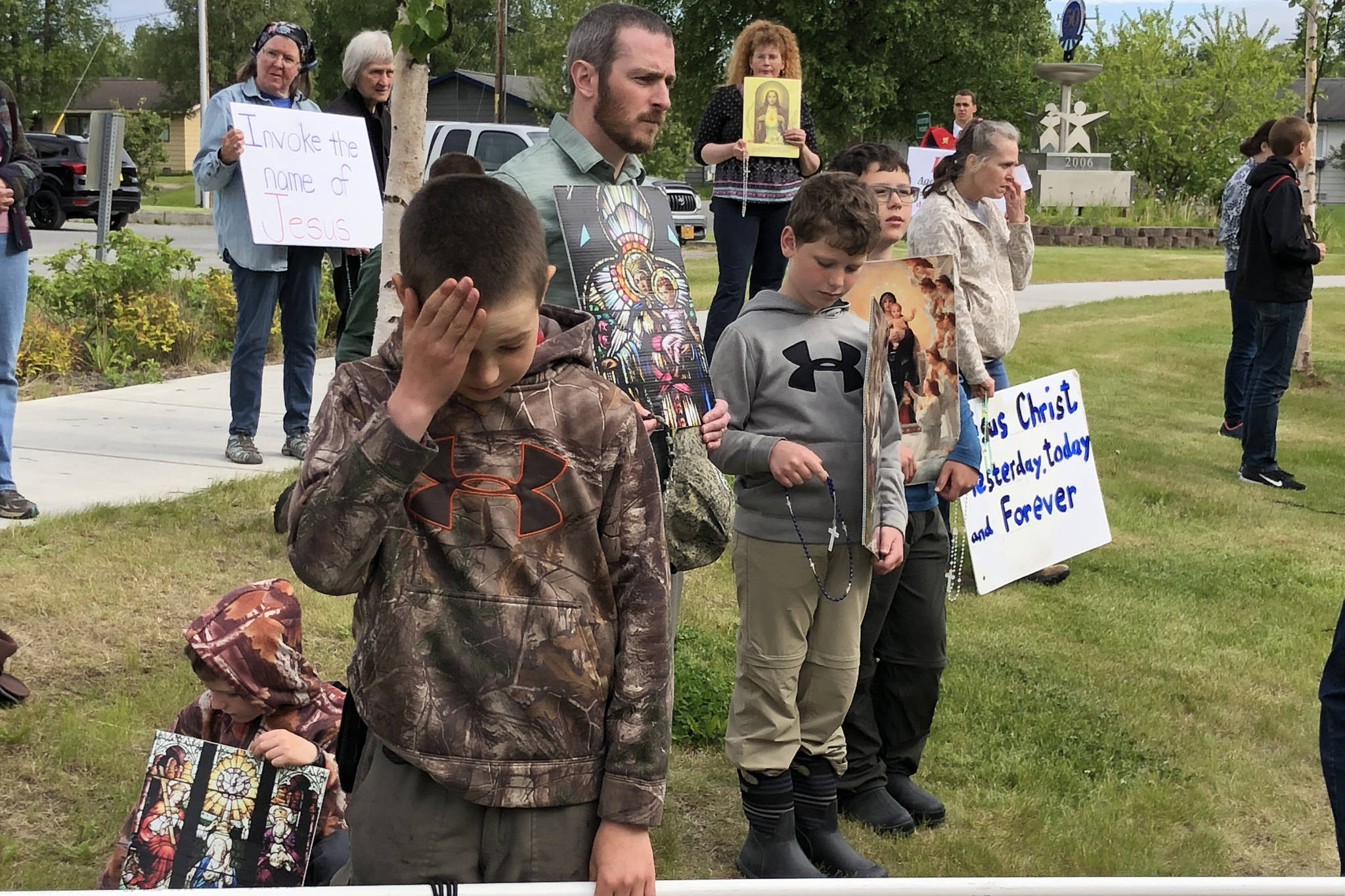A member of the Satanic Temple offered an invocation at Tuesday’s Kenai Peninsula Borough Assembly meeting, prompting walkouts from about a dozen attendees and borough officials, and a protest outside the building.
The invocation was the first given by a member of the Satanic Temple since the borough changed its invocation policy in November. The new policy allows for anyone in the borough to offer an invocation, no matter their religion. The change in policy came after the Alaska Superior Court found the former policy unconstitutional and in violation of the state’s constitution’s establishment clause.
In her invocation, Iris Fontana — a member of the Satanic Temple and one of the prevailing plaintiffs in the lawsuit against the borough — called the room to be present, and for attendees to clear their minds. She asked listeners to embrace the impulse to eat from the tree of knowledge of good and evil.
“Let us demand that humans be judged for their actions,” she said.
No one is required to participate in assembly invocations. Assembly members Norm Blakeley and Paul Fischer stepped out of the assembly chambers, along with Chief of Staff James Baisden and Mayor Charlie Pierce — as well as a handful of audience members.
Two Soldotna police officers were present for the invocation, staying in the assembly chambers entryway.
About 40 people, some holding signs reading “reject Satan and his works” and “know Jesus and his love,” demonstrated outside the borough building before and during the meeting.
In October, the borough lost a lawsuit against plaintiffs represented by the American Civil Liberties Union of Alaska in a fight over its invocation policy, which allowed certain groups and individuals to offer an invocation at the beginning of each meeting. The plaintiffs, Lance Hunt, an atheist, Fontana, and Elise Boyer, a member of the Jewish community in Homer, all applied to give invocations after the policy was established in 2016. All three were denied because they didn’t belong to official organizations with an established presence on the peninsula. They sued and the ACLU Alaska agreed to represent them.
Anchorage Superior Court Judge Andrew Peterson ruled the invocation policy violated the Alaska Constitution’s establishment clause, which is a mandate banning government from establishing an official religion or the favoring of one belief over another. Article 1, Section 4 of the constitution provides that “no law shall be made respecting an establishment of religion.”
In November, the assembly voted against appealing the Superior Court decision and passed an updated invocation policy allowing more people the ability to give invocations at assembly meetings.
Several people addressed the borough’s invocation policy during the meeting’s allotted time for public comment. Michele Hartline and Paul Huber, both from Nikiski, offered their own Christian prayers during public comment.
Homer area resident Barrett Fletcher, who is the pastor of the First Lower Peninsula Congregation of Pastafarians, said the borough should do away with invocations and “stop offending people.”
“I’m sure when I give the invocation in Homer in September there will be people that are offended by the idea of a creator of the universe, the Great Flying Spaghetti Monster, being invoked,” Fletcher said.
Greg Andersen, Kenai resident, also spoke to the policy during his public comment. He warned the room he’ll be giving the next invocation.
“This is just some advanced notice for those of you who have a hard time accepting that some people have beliefs that are different than your own,” Andersen said. “You can turn your back and walk out like I witnessed this evening.”


